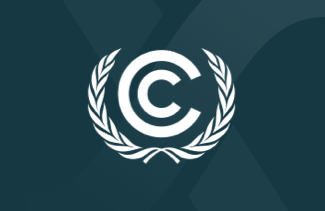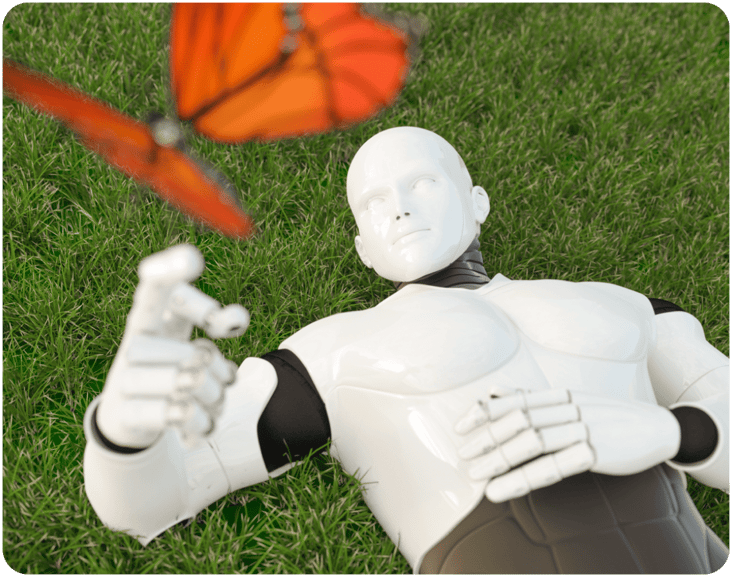Topic / Disruption / Homepage
Disruption

During the 2020s, key technologies will converge to disrupt the six foundational sectors of our global economy and every major industry in the world
Information, energy, transportation, food, labor and materials are being disrupted at an unprecedented speed and scale. The implications for the wider economy, societies and our civilization itself are profound.
At RethinkX, we predict technology disruptions
We predicted the rise of Google, Netflix and Apple.
We were correct.
Ten years ago, we predicted the rise of electric vehicles, and solar, wind and battery power. These technologies are on track to disrupt their sectors faster than expected, transforming our societies in new and unimaginable ways...
For 15 years, our co-founder Tony Seba has been working on a framework to understand and anticipate technology disruptions. We call this the Seba Technology Disruption Framework. It underpins all of our predictions.
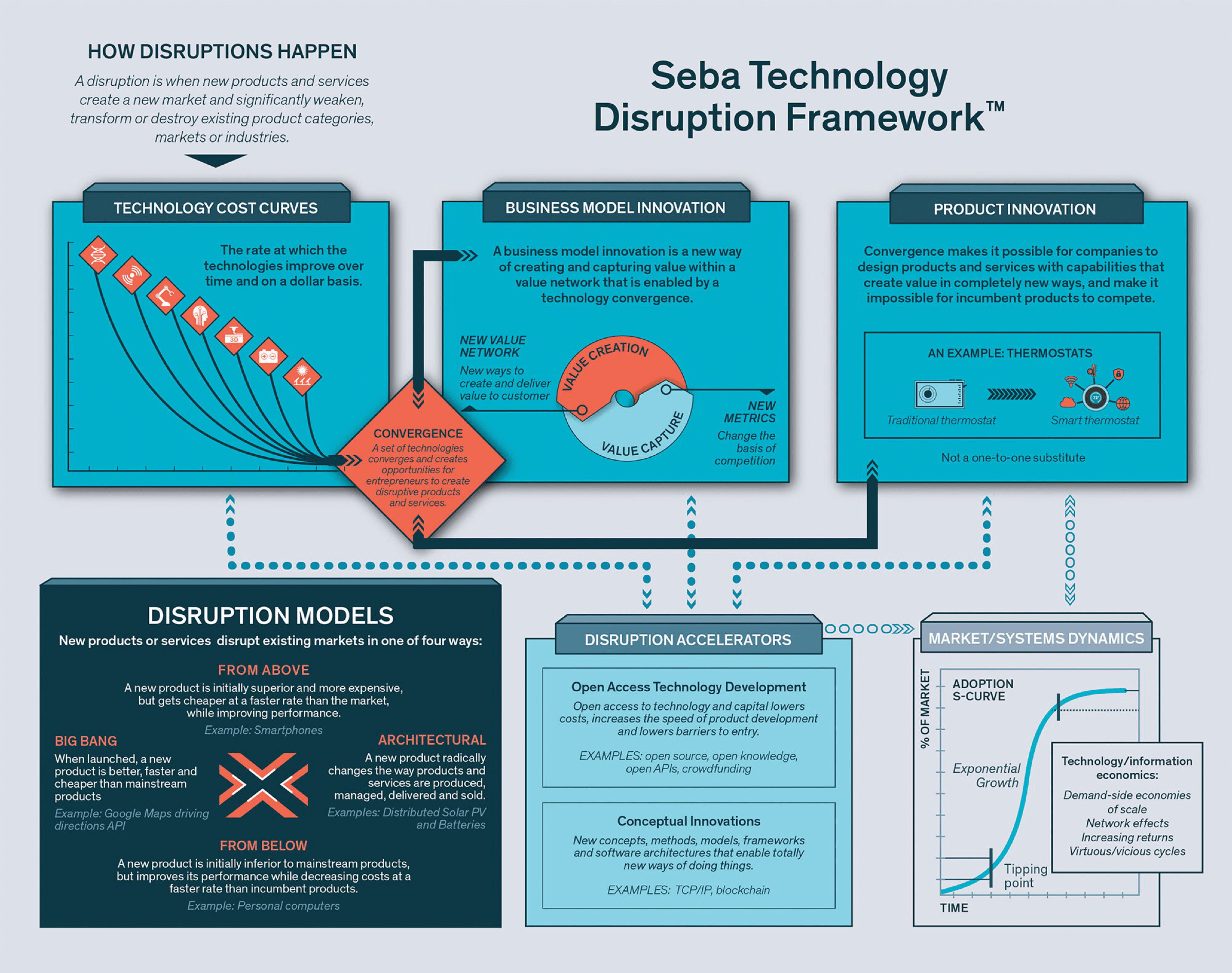
Our framework accurately forecasts the speed and scale of change
Mainstream forecasts consistently assume that change happens linearly or exponentially in complex systems.
This is incorrect.
Change is not slow or incremental, but non linear and rapid. There is usually a long period of equilibrium where nothing seems to happen. Then suddenly, everything changes.

Disruptions bring profound and extraordinary possibilities
Our work is a call to leaders to see what is really happening, to understand the implications, and to redefine the way we all do business, invest and organize society.
We aim to bring light to the change we will experience thanks to emerging modern technologies.

At RethinkX we analyze disruptions across foundational sectors of our global economy, to predict coming change and transformation.
Disruptions & transformation
Throughout history, advancements across foundational sectors have driven the emergence of a new and vastly more capable civilization than any which has come before.
Every leading civilization, from Çatalhöyük and Sumer to Babylonia and Rome, has fallen as it reached the limits of its ability to organize society and solve the problems created by its production system. Today, our government and industry leaders are making the same mistake.
Race to the top
Emerging technologies across the foundational sectors have the potential to drastically change our societies and improve our economies. Their cost improvements are consistent and predictable, and each of the technologies will continue to traverse its remarkable experience curve throughout the 2020s.
Incumbents that do not take drastic measures to adapt to the disruptions happening across our energy, transportation, and food & agriculture sectors will be wiped out.
Witness the transformation
The disruptions of information, labor, materials, energy, transportation and food & agriculture will have incredible impacts on our societies as a whole. Disruptions change the very fabric of how we live our lives, and these disruptions will be no different.
The intervening decade will be turbulent. If we hold strong, we can emerge together to create the wealthiest, healthiest, most extraordinary civilization in history. If we do not, we will join the ranks of every other failed civilization for future historians to puzzle over.

By understanding technology cost curves of a disrupting product, it is possible to predict when a disruption will take place.

Disruption In Depth
Explore the disruptions happening across the foundational sectors of our global economy.
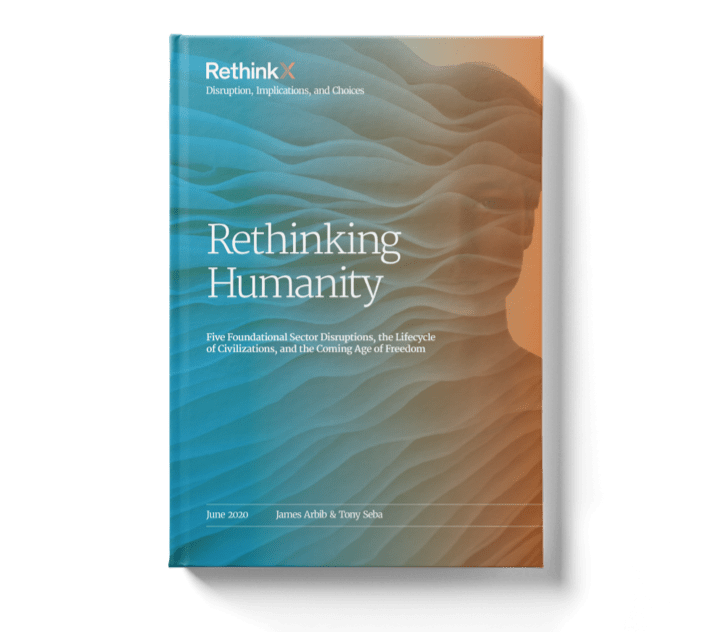
Free download
Rethinking Humanity (2020)
For an in depth understanding of disruption, read our report 'Rethinking Humanity'

Disruption Reports
ENERGY REPORT
Rethinking Energy 2020-2030
In Rethinking Energy 2020-2030 (published 2020), our analysis shows that 100% clean electricity from the combination of solar, wind and batteries (SWB) is both physically possible and economically affordable for any region in the world.
100% SWB is possible across the entire continental United States as well as the majority of other populated regions of the world by 2030.
Adoption of SWB is growing exponentially worldwide and disruption is now inevitable.
By 2030 SWB will offer the cheapest electricity option for most regions.
Coal, gas and nuclear power assets will become stranded during the 2020s, and no new investment in these technologies is rational from this point forward.
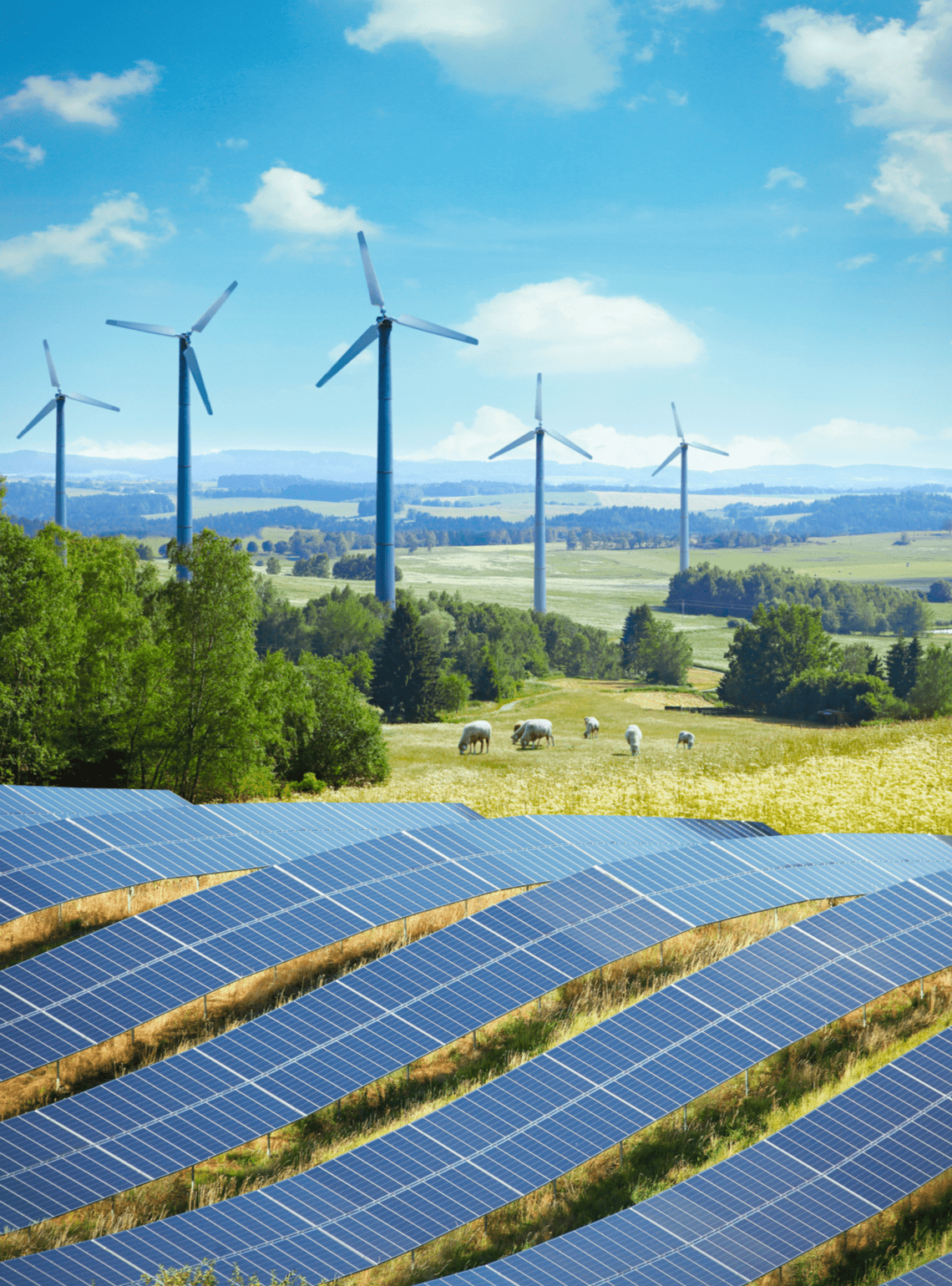
TRANSPORTATION REPORT
Rethinking Transportation 2020-2030
In Rethinking Transportation 2020-2030 (published 2017) we showed how the TaaS disruption will have enormous implications across the transportation and oil industries, decimating entire portions of their value chains, causing oil demand and prices to plummet, and destroying trillions in investor value. TaaS will also create trillions in new business opportunities, consumer surplus and GDP growth.
Using TaaS, a modern transportation technology, the average American family will save more than $5,600 per year in transportation costs, equivalent to a wage raise of 10%.
This will keep an additional $1 trillion per year in Americans’ pockets by 2030, potentially generating the largest infusion of consumer spending in history.
The TaaS transport system will reduce energy demand by 80% and tailpipe emissions by over 90%. We may see a largely carbon-free road transportation system by 2030.
By 2030, individually owned combustion engine vehicles will still represent 40% of the vehicles in the U.S. vehicle fleet, but they will provide just 5% of passenger miles. The geopolitical importance of oil will also diminish.
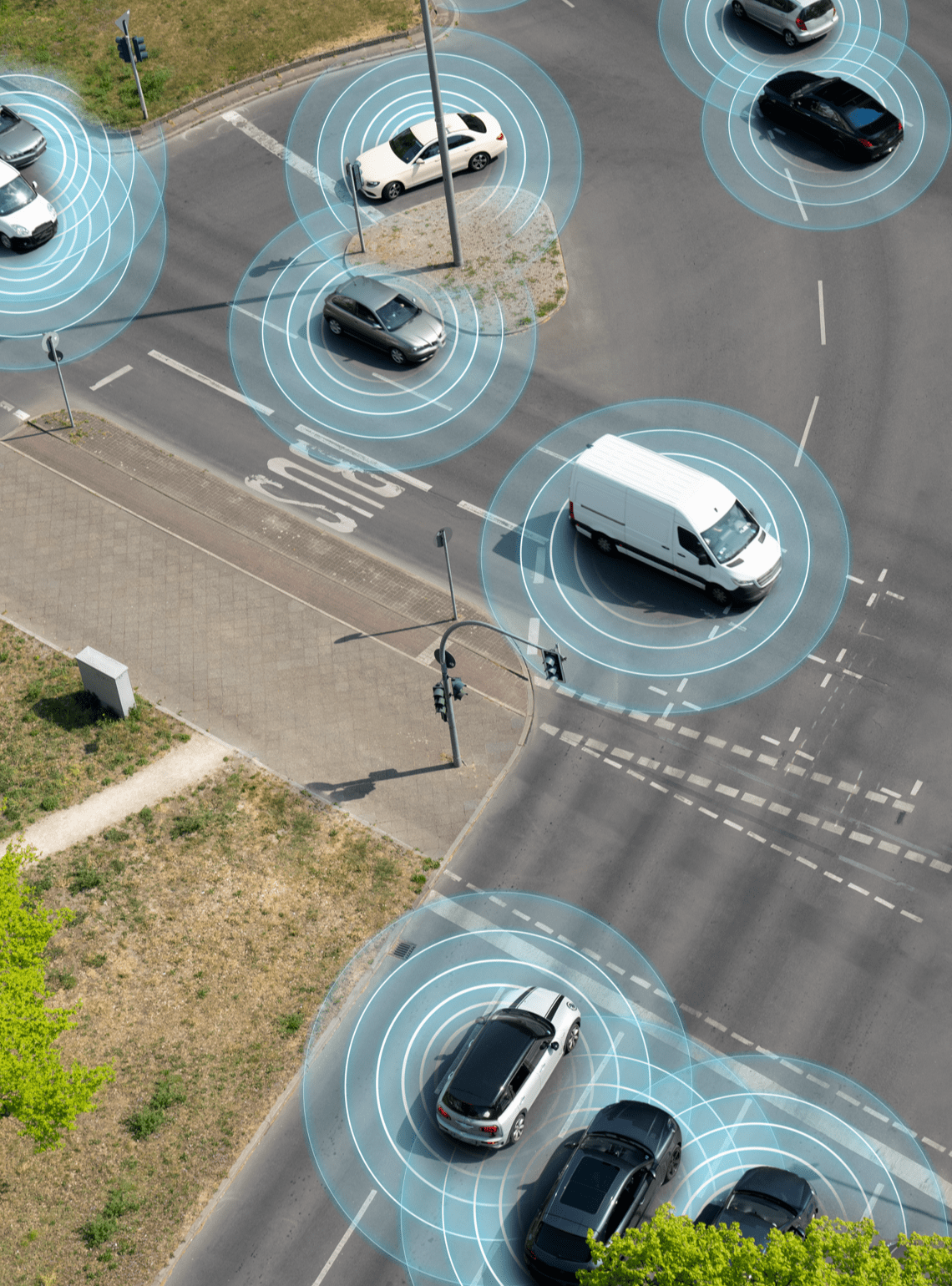
FOOD & AGRICULTURE REPORT
Rethinking Food & Agriculture 2020-2030
Rethinking Food and Agriculture 2020-2030 (published 2019) shows how the modern food disruption, made possible by rapid advances in precision biology and an entirely new model of production we call Food-as-Software, will have profound implications not just for the industrial agriculture industry, but for the wider economy, society and the environment.
The disruption of food and agriculture is inevitable.
The cost of proteins will be five times cheaper than existing animal proteins by 2030, and 10 times cheaper by 2035. Eventually proteins will be nearly as cheap as sugar.
Modern products will be cheaper and superior in every conceivable way.
The aim of this report is to start a conversation and focus decision-makers’ attention on the scale, speed and impact of the modern food disruption.
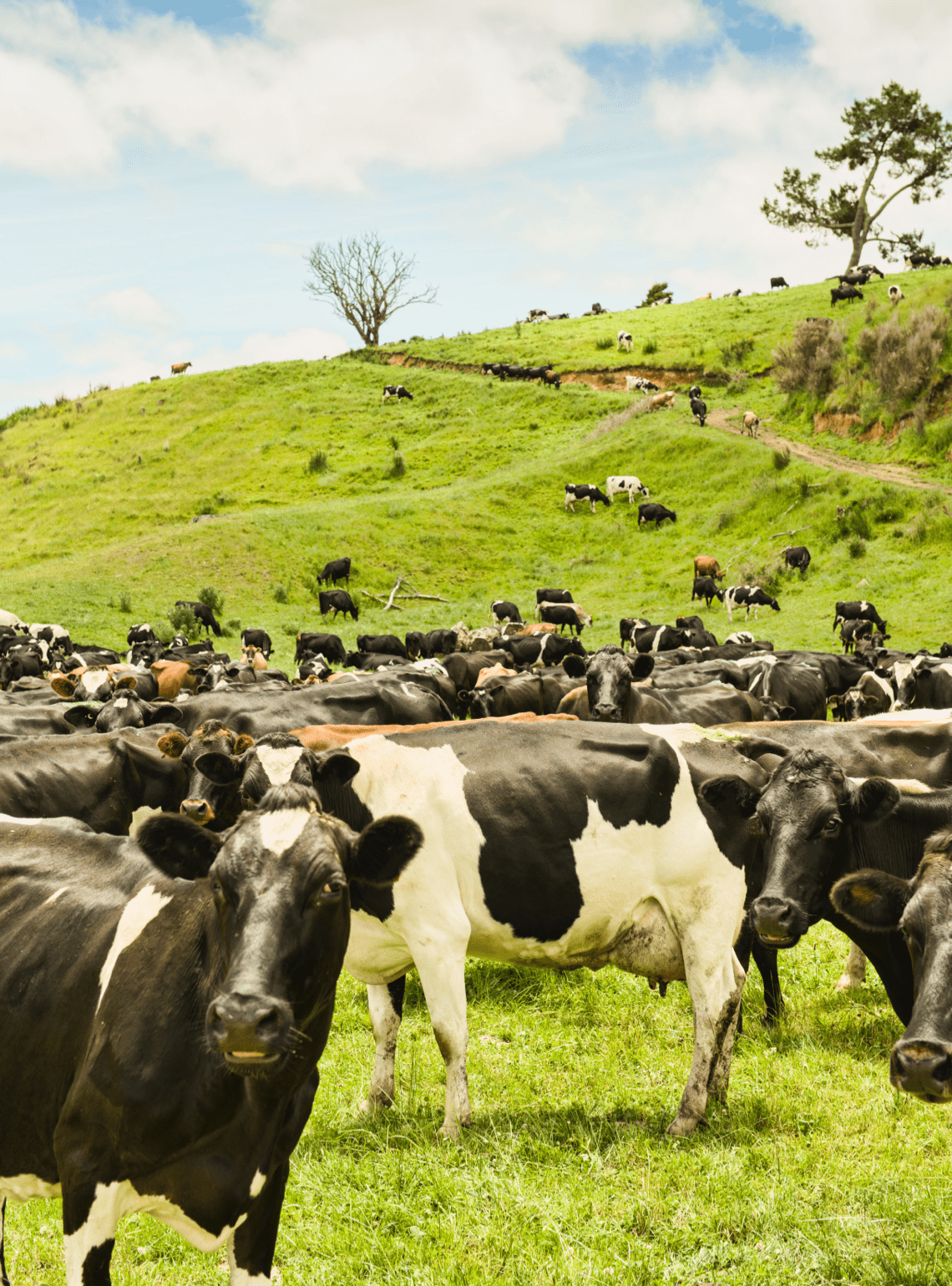


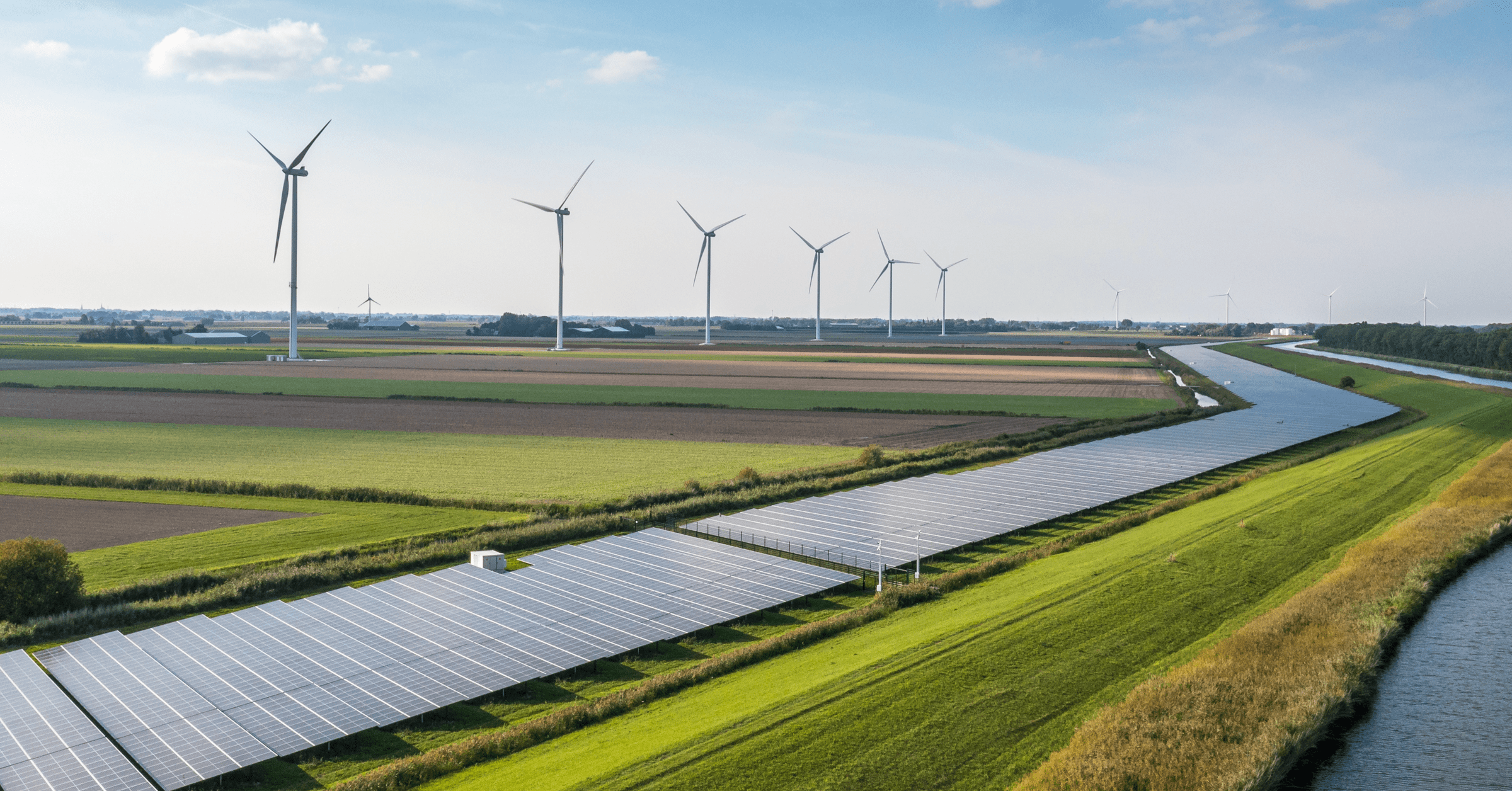

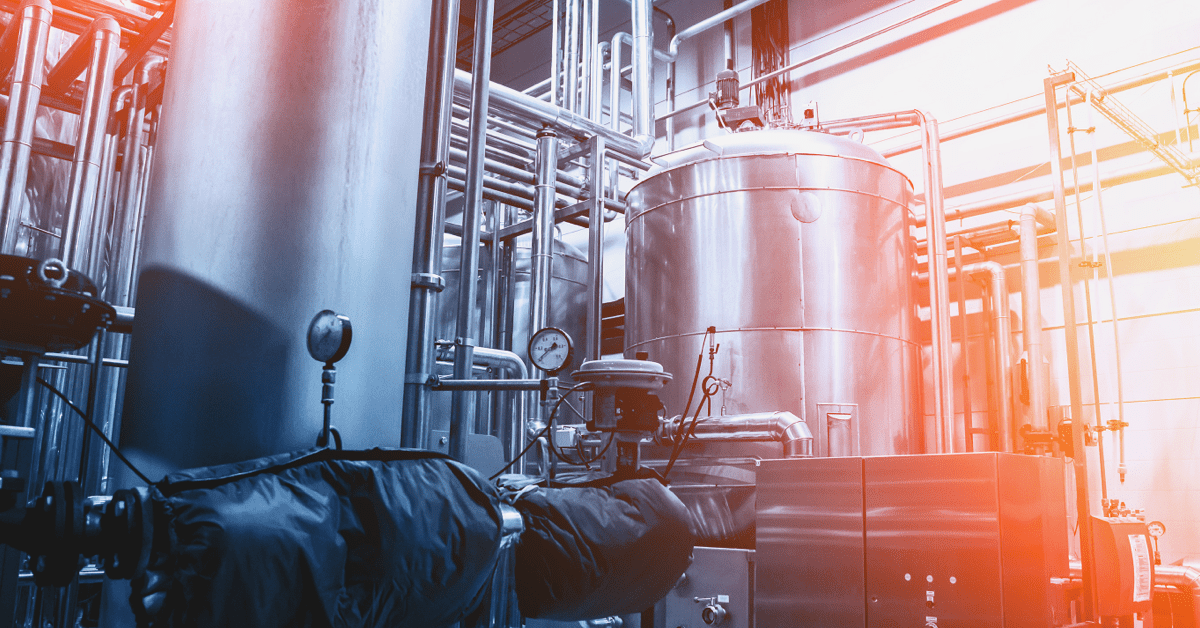
-min-2.png?width=732&name=Copy%20of%20RethinkX%20-%20In%20the%20News%20(1)-min-2.png)
-min-1.png?width=732&name=Copy%20of%20RethinkX%20-%20In%20the%20News%20(8)-min-1.png)

-min-1.png?width=732&name=Copy%20of%20RethinkX%20-%20In%20the%20News%20(7)-min-1.png)
-min.png?width=732&name=Copy%20of%20RethinkX%20-%20In%20the%20News%20(11)-min.png)
-min-1.png?width=732&name=Copy%20of%20RethinkX%20-%20In%20the%20News%20(6)-min-1.png)
-min-1.png?width=732&name=Copy%20of%20RethinkX%20-%20In%20the%20News%20(5)-min-1.png)
-min-1.png?width=732&name=Copy%20of%20RethinkX%20-%20In%20the%20News%20(4)-min-1.png)
-min-1.png?width=732&name=Copy%20of%20RethinkX%20-%20In%20the%20News%20(3)-min-1.png)
-min-1.png?width=732&name=Copy%20of%20RethinkX%20-%20In%20the%20News%20(2)-min-1.png)
-min-3.png?width=732&name=Copy%20of%20RethinkX%20-%20In%20the%20News%20(1)-min-3.png)



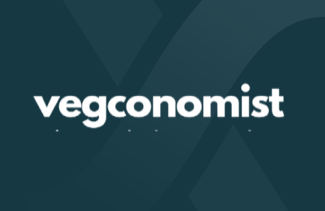


-min%20(1).png?width=732&name=Copy%20of%20RethinkX%20-%20In%20the%20News%20(2)-min%20(1).png)


.png?width=732&name=Copy%20of%20RethinkX%20-%20In%20the%20News%20(6).png)
.png?width=732&name=Copy%20of%20RethinkX%20-%20In%20the%20News%20(5).png)
.png?width=732&name=Copy%20of%20RethinkX%20-%20In%20the%20News%20(2).png)

.png?width=732&name=Copy%20of%20RethinkX%20-%20In%20the%20News%20(4).png)
.png?width=732&name=Copy%20of%20RethinkX%20-%20In%20the%20News%20(3).png)
.png?width=732&name=Copy%20of%20RethinkX%20-%20In%20the%20News%20(1).png)


-min.png?width=732&name=Copy%20of%20RethinkX%20-%20In%20the%20News%20(12)-min.png)
-min.png?width=732&name=Copy%20of%20RethinkX%20-%20In%20the%20News%20(15)-min.png)

-min.png?width=732&name=Copy%20of%20RethinkX%20-%20In%20the%20News%20(14)-min.png)
-min.png?width=732&name=Copy%20of%20RethinkX%20-%20In%20the%20News%20(13)-min.png)
-min.png?width=732&name=Copy%20of%20RethinkX%20-%20In%20the%20News%20(10)-min.png)
-min.png?width=732&name=Copy%20of%20RethinkX%20-%20In%20the%20News%20(9)-min.png)
-min-1.png?width=732&name=Copy%20of%20RethinkX%20-%20In%20the%20News%20(1)-min-1.png)


-min.png?width=732&name=Copy%20of%20RethinkX%20-%20In%20the%20News%20(6)-min.png)
-min.png?width=732&name=Copy%20of%20RethinkX%20-%20In%20the%20News%20(4)-min.png)
-min.png?width=732&name=Copy%20of%20RethinkX%20-%20In%20the%20News%20(3)-min.png)

-min.png?width=732&name=Copy%20of%20RethinkX%20-%20In%20the%20News%20(2)-min.png)
-min.png?width=732&name=Copy%20of%20RethinkX%20-%20In%20the%20News%20(1)-min.png)














